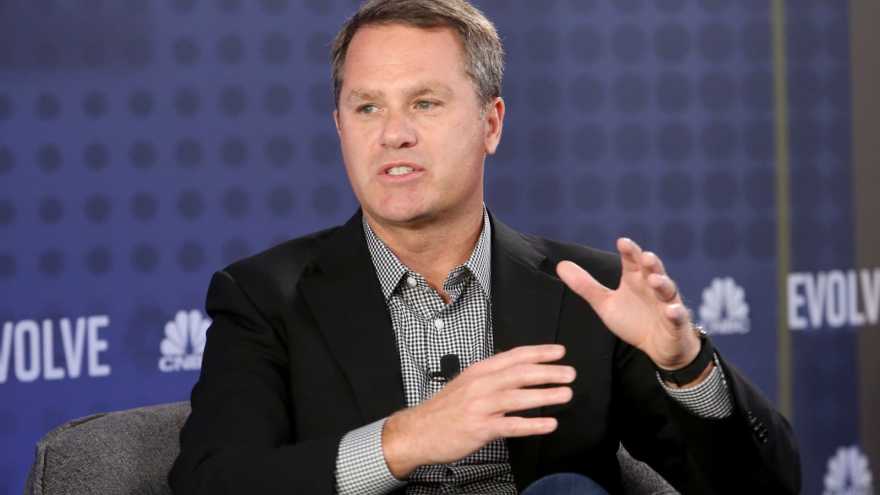Walmart CEO Doug McMillon to step down in January after 10 years of reinventing the retail giant

Walmart is heading into a major leadership shift. Doug McMillon, the longtime CEO who helped pull the retailer out of its discount-store stereotype and into its tech-driven, e-commerce era, will step down at the end of January, the retail giant announced on Friday. The news caught many off guard, given Walmart’s strong performance and its rising status as a retail heavyweight in the AI era.
John Furner, Walmart’s U.S. CEO and a company veteran who started as an hourly associate, will take over on February 1. McMillon will remain as an executive adviser through January 2027, giving the company a long runway for transition.
“Walmart announced Friday that longtime CEO Doug McMillon will retire at the end of January, which came as a surprise to some, given the company’s success in a rapidly evolving retail landscape,” NBC News confirmed.
McMillon, 59, has been Walmart’s chief executive since 2014 and is only the fifth person to run the company in its 63-year history. His decade at the top reshaped the company in ways few predicted. When he took the job, Walmart was seen as a low-price chain under pressure for underpaying its workers and falling behind Amazon online. A decade later, the picture is very different. Walmart now attracts higher-income households, spends heavily on automation and tech, and has transformed its online operation into the country’s second-largest e-commerce business behind Amazon.
Walmart’s Next Chapter: Doug McMillon Retires, John Furner to Lead Retailer Through Its ‘AI-Driven Transformation’
Much of that shift happened under McMillon’s watch. The company raised wages, tested new store models, expanded grocery pickup, and pushed deeper into digital advertising and last-mile logistics. Investors rewarded the pivot. Walmart’s stock has climbed roughly 300% since he took the job, and shares are up about 13% this year alone.
McMillon called his time as CEO “a great honor,” adding that he’s worked with Furner for more than 20 years and believes he is “uniquely capable of leading the company through this next AI-driven transformation.” That last line signals where Walmart sees itself headed: a retailer leaning harder into automation, data, logistics tech, and AI-powered operations.
Furner, 51, inherits a company that’s been outperforming much of the retail sector. Walmart’s quarterly results have stayed steady even as shoppers split into two camps — higher-income households spending freely and everyone else pulling back. On Walmart’s August earnings call, McMillon said customer behavior has remained “generally consistent,” adding that the company isn’t seeing “dramatic shifts.” The story looks different across the rest of retail. Target’s shares have dropped by about a third this year. Amazon’s stock is up around 8% but the company has trimmed thousands of corporate roles.
McMillon also spent years steering Walmart through political turbulence. The company faced pressure from lawmakers and activists across the spectrum and ended up in the crosshairs of former President Donald Trump more than once. When Walmart said tariffs were raising costs, Trump fired back on Truth Social: “Walmart should STOP trying to blame Tariffs as the reason for raising prices throughout the chain… I’ll be watching, and so will your customers!!!” Later, the Trump White House pointed to Walmart’s Thanksgiving meal pricing as proof that grocery costs were falling, even though this year’s menu had fewer items.
Through those flare-ups, Walmart pushed ahead with tech upgrades, supply-chain overhauls, and a more modern brand identity. McMillon became known for balancing the company’s massive size with a willingness to rethink its future — from store operations to online strategy to warehouse automation.
The leadership handoff marks the beginning of a new chapter, but not a reset. Furner is an insider who knows the company’s culture, its workforce, and the scale of the operation he’s about to run. The bigger question is how aggressively Walmart leans into the AI wave McMillon referenced. Between automation, fulfillment tech, and the rise of retail media, Walmart is operating in a moment where its size gives it leverage — and its next moves will shape the industry.
For now, the company is signaling continuity. McMillon stays close for the next two years, Furner steps in with decades of experience, and Walmart’s momentum carries into 2026. But a leadership shift at a company this large always opens the door to new strategy, new experiments, and new signals about where retail is headed next.




